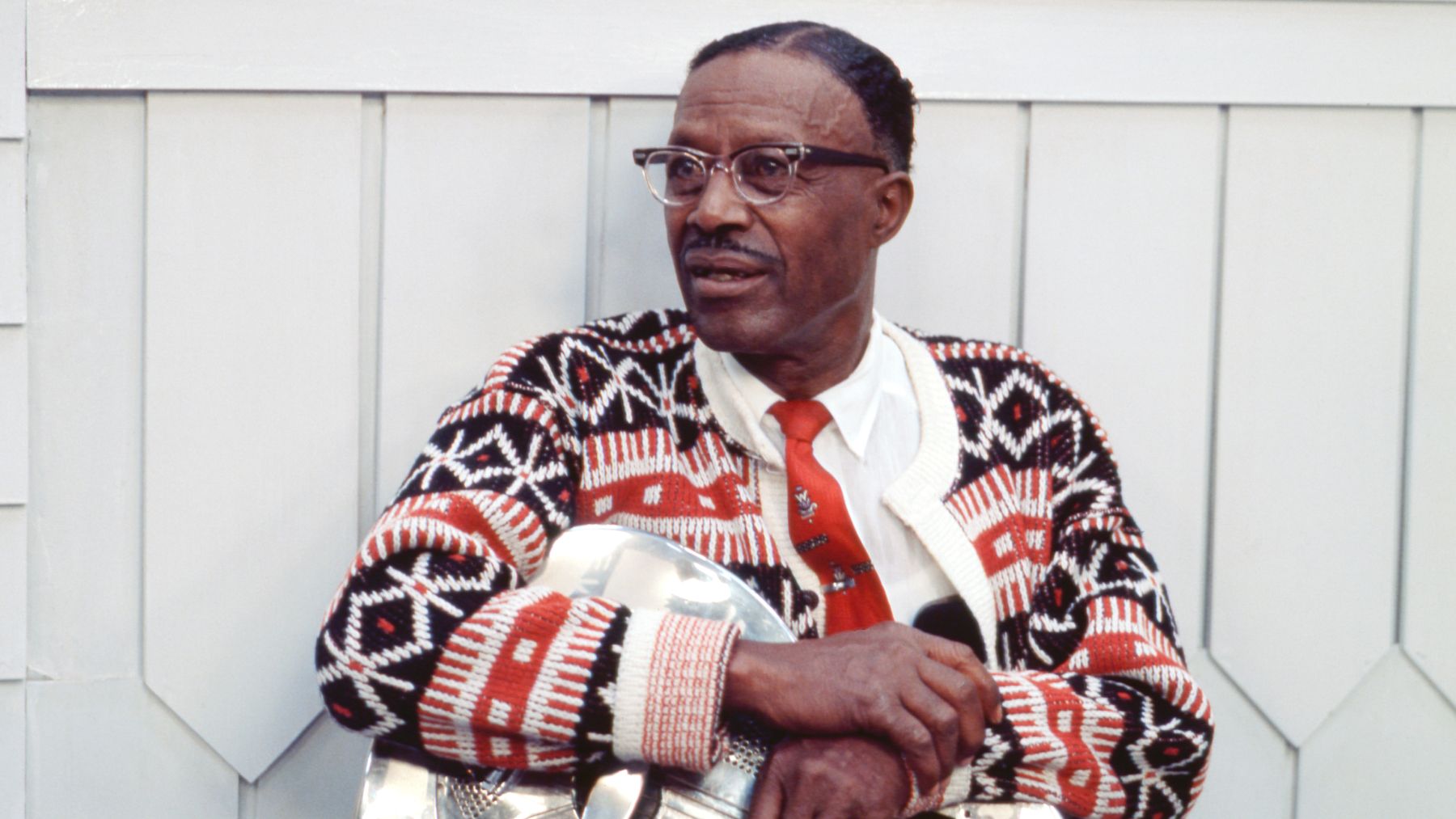
After 60 Years on a Shelf, a Trove of Unreleased Son House Recordings Are Finally Coming Out
After sitting in a cardboard box for nearly 60 years, a collection of previously unreleased Son House recordings will finally see the light of day with the arrival of Forever on My Mind on March 18, 2022 via Dan Auerbach’s Easy Eye Sound.
The recordings come from a Nov. 23, 1964 performance Son House gave at Wabash College in Crawfordsville, Indiana; five months later, the blues legend cut his seminal 1965 Columbia Records album, The Legendary Son House: Father of Folk Blues, which introduced him to a new, wider audience.
Forever on My Mind features new versions of seven songs Son House recorded during his time with Columbia — including the new LP’s first offering, a fresh rendition of “Preachin’ Blues” — but the eighth song, the title track, was never officially recorded, and only existed as a part of Son House’s live sets (there’s some footage of him playing it at the 1966 Newport Folk Festival).
Auerbach tells Rolling Stone he grew up devouring Son House’s Columbia recordings and was stunned to hear the 1964 Wabash tape, which had long been in the possession of House’s manager, Dick Waterman. “When I heard those Son House recordings, it was really emotional, honestly,” Auerbach says. “Because I had such a deep connection to the songs, and to hear those old songs in a brand new light, to hear him singing so intimately, in such good form, sober, and the quality of the recording was so immaculate — I was just really overjoyed.”
Waterman was one of three blues obsessives who tracked down Son House in 1964 in Rochester, New York, and helped the artist relaunch his career (new interest in the musician had been sparked after the reissue of 78s Son House had made for Paramount Records in 1930 and field recordings made by Alan Lomax in 1941 and 1942). Waterman helped Son House return to the stage for the first time in decades, securing him spots at the Philadelphia Folk Festival, as well as a handful of college campuses. Part of a Nov. 21, 1964 show at Oberlin College was recorded (and a lone track appeared on the 1980 release Rare Blue), but the Wabash College show two days later was recorded in full.
“Wabash did the taping, and then they later gave me the reel-to-reel tape,” Waterman said in a statement. “The show was held in kind of an assembly hall. There were a few dozen [in the audience] — there may have been up to 50 people, something like that. They were quiet and polite during the performance… There were no barriers, there were no filters between him and the audience. He was just giving them the plain, unvarnished Delta material, as he knew it and as he sang it.”
While that reel-to-reel spent the next six decades sitting on a shelf with little care or attention, it was still in decent shape when Auerbach and Easy Eye got ahold of it. The recordings were successfully transferred and Auerbach says only a bit of editing was done to clean up some stray noise. “It was just guitar and vocals,” he says. “I didn’t want anything to distract.”
The Forever on My Mind recordings, Auerbach adds, are revelatory in a unique way, capturing the way Son House’s material was always living, always changing. “Every time he performs a song, it’s a little bit different. He lives in the moment. And I think that that comes through loud and clear — how emotionally connected he sounds to the music that he’s making… The older think he got, the more powerful he got. He took his time, he stretched, he put everything he had into his songs. You can tell there was no time limit [with these recordings]. There used to be time limits [on records] because he only had so much time to record in the 40s. But when he was making these recordings, you could tell he closed his eyes and he just let it all hang out.”
Forever on My Mind is just the first release Auerbach and Easy Eye are planning from the trove of tapes they acquired from Waterman, who also worked with Lightnin’ Hopkins, Skip James, Arthur Crudup, and other blues luminaries. Auerbach can’t say yet what rarities will come next, but he quips, “Go look at who Dick Waterman managed, and you can imagine.”



